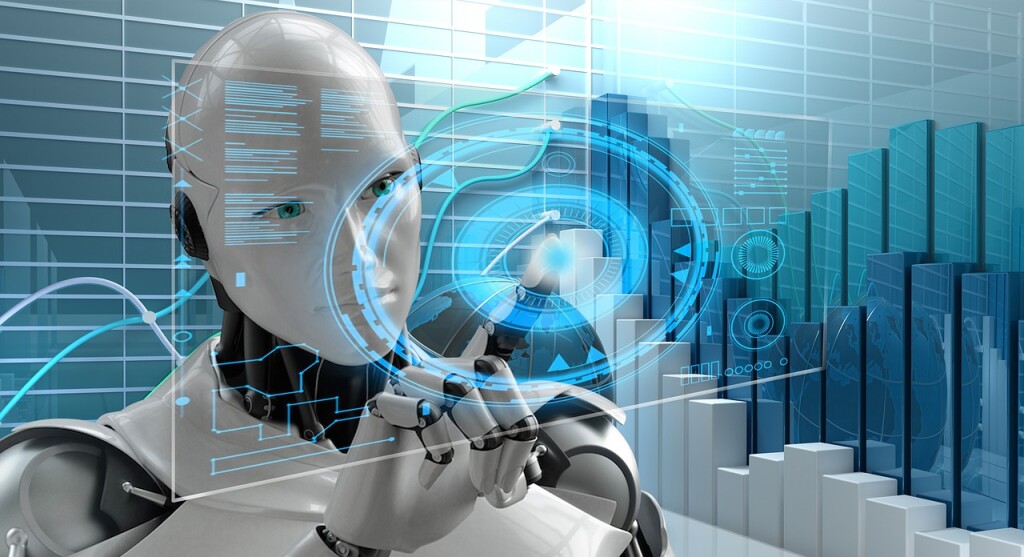Weighing the Chances of Robots Taking Over the Human Workforce, Is it Possible?
We have all seen it in sci-fi movies — robots taking over the jobs of humans and becoming the superior workforce.
Many believe that this is the reality because sooner or later, the influx of advanced technology is going to drive the human workforce to the sidelines. But can this happen?
Well, frankly speaking, it already has! More and more businesses are implementing robotics and AI into their system in the hope of improving efficiency and lowering down costs. It can even be compared to how farming equipment replaced horses and humans during the industrial revolution.
But it’s a bit different in this case, though. Humans are ever-creative, and our superior intellect and ability to go beyond technicality is what makes us indisposable.
So, is there still a chance that robots are going to take over our jobs in the near future? Let’s find out.
Lower Down Operational Costs
One of the best things, why robots are already starting to take over the workforce, is because they can lower down operational costs. The first thing that comes to mind in having robots in the workplace might seem like investing huge money. Well, it is.
You even need to spend thousands, if not millions of dollars. But it’s all worth it because you can easily break even with the costs and boost profitability sooner or later. It’s only the initial expenses that might turn you off.
But there’s no stopping you from gaining huge profits once your automated robotic workforce goes into full blast.
Take note that you don’t have to spend money on monthly salaries and wages, bonuses, perks, insurance, and the truckload of benefits you have to give to your employees.
Improved Efficiency and Quality
Another reason why robots are most likely to fully take over the workforce is due to the improved output quality you can get from them.
Robots are designed to work on a specific task with utmost accuracy and precision. They are programmed to do that, which is why you can assure that they can do the job right.
You don’t have to worry about their varying personality, personal experiences, attitude to work, work ethics, and mood, knowing that all these can affect their quality of the job. Invest in robotics and workforce automation if you want to increase your production without compromising quality.
Workplace Safety
Workplace safety is another huge benefit businesses can get from robots. Humans working in factories always put their lives in danger. You don’t have to worry about that with robots, though, because they are dispensable.
This is very important if your business involves hazardous environments such as dealing with chemicals, sharp equipment, and other dangerous processes.
A good example of this is an end effector manufacturer that is becoming the number one choice of businesses today. They develop various robotics such as robotic arms and automated machines to deal with repetitive and dangerous processes most especially in factories.
Need for Creativity
But there are still disadvantages even though you can get a ton of benefits from working robots. One of these is the lack of creativity. Creativity is what makes us human, right?
The capability to think of ingenious ways depending on a specific situation gives us an edge over our “more efficient” machine counterparts. There is no doubt that robots are great when it comes to working on dull and repetitive tasks thanks to their machine-level accuracy.
However, creativity is only exclusive to humans. It’s not something that can be programmed into microchips. This is one of the major reasons why robotics hasn’t yet entered the mainstream.
The Deal With Context
Humans are emotional and social beings that understand interpersonal communication. We can relate to cultural norms, slang, and personal cues, which are vital in achieving goals.
Humans understand the context — a skill that robots cannot comprehend and achieve. You might have noticed communicating with another person from another country sometimes results in lost translation.
Well, that’s the same principle that can be applied to robots. However, we humans can fix this lost translation and find a way to understand the original meaning behind their message.
Customer Service
Customer service is an important aspect of running a successful business. Any business won’t survive and thrive if it doesn’t have good customer service.
Note that robotic systems such as AI or artificial intelligence can deal with clients through programmed messages and cues. However, they don’t have any consideration on how this can affect customer relationships. Because again, they are not living and breathing beings.
Human-to-human interaction is irreplaceable when it comes to customer service. And even if AI and robotics have experienced considerable advancements, customers still prefer communicating with real humans for business transactions.
Personal human contact is a leading factor that can affect your business’ success.
Human to Human Connection
So, can robots take over the human workforce?
Yes, but not fully. It is a fact that robots are more efficient in doing work. But that kind of work is only reserved for repetitive and dull tasks which do not require complex decision-making skills and social influence.
It is then safe to say that robots are here to stay, but their importance and value in the working landscape will stay limited in the near future.



























